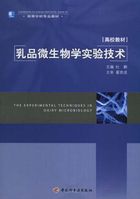Marx is dealing here first of all only with the determination of the value of commodities , i.e., of objects which, within a society composed of private producers, are produced and exchanged against each other by these private producers for their private account. In this passage therefore there is no question whatever of "absolute value" -- wherever this may be in existence -- but of the value which is current in a definite form of society. This value, in this definite historical sense, is shown to be created and measured by the human labour embodied in the individual commodities, and this human labour is further shown to be the expenditure of simple labour-power. But not all labour is a mere expenditure of simple human labour-power; very many sorts of labour involve the use of capabilities or knowledge acquired with the expenditure of greater or lesser effort, time and money. Do these kinds of compound labour produce, in the same interval of time, the same commodity values as simple labour, the expenditure of mere simple labour-power? Obviously not. The product of one hour of compound labour is a commodity of a higher value -- perhaps double or treble -- in comparison with the product of one hour of simple labour. The values of the products of compound labour are expressed by this comparison in definite quantities of simple labour; but this reduction of compound labour is established by a social process which goes on behind the backs of the producers, by a process which at this point, in the development of the theory of value, can only be stated but not as yet explained.
It is this simple fact, taking place daily before our eyes in present-day capitalist society, which is here stated by Marx. This fact is so indisputable that even Herr Dühring does not venture to dispute it either in his Cursus or in his history of political economy ;and the Marxian presentation is so simple and lucid that no one but Herr Dühring "is left in complete obscurity" by it. Because of his complete obscurity he mistakes the commodity value, which alone Marx was for the time being concerned with investigating, for "the natural cost", which makes the obscurity still more complete, and even for the "absolute value", which so far as our knowledge goes has never before had currency in political economy. But whatever Herr Dühring may understand by the natural cost, and whichever of his five kinds of value may have the honour to represent absolute value, this much at least is sure: that Marx is not discussing any of these things, but only the value of commodities; and that in the whole section of Capital which deals with value there is not even the slightest indication of whether or to what extent Marx considers this theory of the value of commodities' applicable also to other forms of society.
"Therefore the position is not," Herr Dühring proceeds, "as in Herr Marx's hazy conception, that the labour-time of one person is in itself more valuable than that of another, because more average labour-time is condensed as it were within it, but all labour-time is in principle and without exception -- and therefore without any need to take first an average -- absolutely equal in value" {D. K. G. 500}.
It is fortunate for Herr Dühring that fate did not make him a manufacturer, and thus saved him from fixing the value of his commodities on the basis of this new rule and thereby running infallibly into the arms of bankruptcy.
But say, are we here still in the society of manufacturers? No, far from it. With his natural cost and absolute value Herr Dühring has made us take a leap, a veritable salto mortale , out of the present evil world of exploiters into his own economic commune of the future, into the pure, heavenly air of equality and justice; and so we must now, even though prematurely, take a glance at this new world.
It is true that, according to Herr Dühring's theory, only the labour-time expended can measure the value of economic things even in the economic commune; but as a matter of course the labour-time of each individual must be considered absolutely equal to start with, all labour-time is in principle and without exception absolutely equal in value, without any need to take first an average. And now compare with this radical equalitarian socialism Marx's hazy conception that the labour-time of one person is in itself more valuable than that of another, because more average labour-time is condensed as it were within it -- a conception which held Marx captive by reason of the traditional mode of thought of the educated classes, to whom it necessarily appears monstrous that the labour-time of a porter and that of an architect should be recognised as of absolutely equal value from the standpoint of economics!
Unfortunately Marx put a short footnote to the passage in Capital cited above: "The reader must note that we are not speaking here of the wages or value that the labourer gets for a given labour-time, but of the value of the commodity in which that labour-time is materialised ."Marx, who seems here to have had a presentiment of the coming of his Dühring, therefore safeguards himself against an application of his statements quoted above even to the wages which are paid in existing society for compound labour. And if Herr Dühring, not content with doing this all the same, presents these statements as the principles on which Marx would like to see the distribution of the necessaries of life regulated in society organised socialistically, he is guilty of a shameless imposture, the like of which is only to tee found in the gangster press.
But let us look a little more closely at the doctrine of equality in values. All labour-time is entirely equal in value, the porter's and the architect's. So labour-time, and therefore labour itself, has a value.













